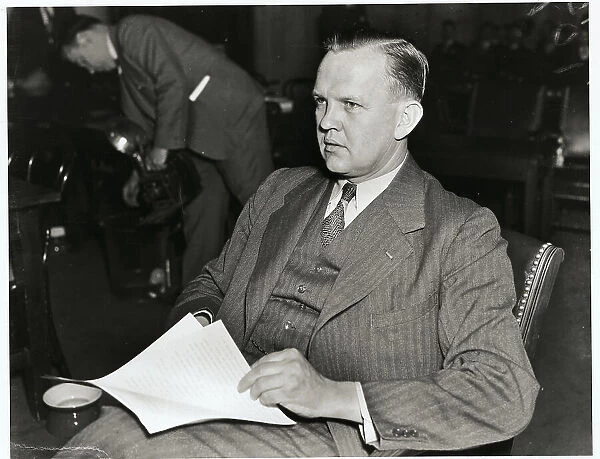
For Operation Torch to succeed, no detail must be overlooked. If the ‘sacrificial convoy’ hypothesis is correct, the SL 125 is one of the specks of dust that will contribute to the success of this crucial and very audacious undertaking. It was a decoy that had to be seen and attacked by the U-Boats. The enemy absolutely had to know that the convoy was heading up the African coast towards England. He must know the route and the progress, but that’s not all, he must also be convinced that he deserves to be attacked! Submarines can overlook prey that is too big for them, too fast or uninteresting.
How can we be sure that the enemy will receive the good news and take it into account? It is highly likely that the Germans will learn the number of ships in the convoy, the number of men on board, the nature of the cargo and the date of arrival in the area. How was this information passed on? By whom? Where? When? Was it a simple ‘leak’, or did a number of corroborating clues reach the Germans’ ears? Did the brains behind Torch simply talk on the radio, convinced that their conversations would be heard by the enemy? Or did they call on informers on the ground? Or did the dispersed spies pass on this secret and detailed information in bits and pieces to their German counterparts? Who, if anyone, was involved in this diversion? Where were they and how did they go about it? There is no shortage of hypotheses. Some Allied spies from this period have long been known. As the archives have been de-classified, other names have come to light, on the British and American sides, of these shadowy agents who sometimes worked throughout the war without the enemy suspecting them.
One of the best-known spies is William Alfred Eddy, whom some have called the American ‘Lawrence of Arabia’. The son of Presbyterian missionaries, Eddy was born in Lebanon in 1896. This agent with an unstoppable cover was also officially a missionary, but in fact he was in turn a soldier, spy and diplomat. A native Arabic speaker and connoisseur of the Muslim world, he became naval attaché in Cairo in 1941 before being sent to Tangiers, Morocco, to try to secure the regions of North Africa threatened by the Germans. Depending on the source, Eddy is said to have instigated « car bombs, sabotage, series of assassinations and intimidation » or to have been recruited to « use his knowledge of the Koran, his years of Arabic language practice and his partnerships with Muslim leaders to prepare the ground for Operation Torch ».
In his biography of Eddy, American journalist and Middle East specialist Thomas Lippman even explains that Eddy’s intelligence work was one of the keys to the success of Operation Torch! But Lippman told us that, as far as he knew, William Eddy was in no way involved in any diversionary operation by SL 125… To find out more, we will be interviewing Thomas Lippman as well as Andrew Buchanan, another great historian specialising in the period and author of the book « American Grand Strategy in the Mediterranean during World War II ».

